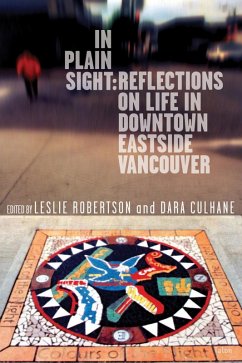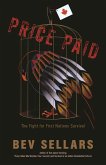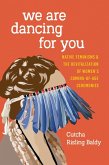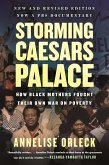News stories of the less fortunate, the socio-economically disenfranchised in North America are too often presented to fascinate or horrify their consumers with a construct of stereotypes which commodify and intentionally erase the real lives of people "covered" by the popular media.
In compiling this collection of seven life stories from Vancouver's "Downtown Eastside," the editors set out to create a space for the voices of women who are seldom heard on their own terms-the words of people who are publicly visible yet who, due to the blur of preconceptions that surround Vancouver's inner city, remain unseen. To many, the women who offer their stories here are "people without history," defined only by belonging to a neighbourhood branded by layers of stigma. Their diverse histories are rarely included in the cacophony of media depictions of urban poverty: the "drug problem," "prostitution" or statistics on crime and violence. These women share the stories of their complex pathways from childhood into and out of the "Downtown Eastside," through periods of addiction and recovery, strength and illness, affluence and poverty. They confront and challenge the familiar stereotypes applied to drug users, to "wayward women," and to those who live with disease and/or mental illness.
Leslie A. Robertson's and Dara Culhane's introductions to both the collection and the individual stories provide an ethnographic context for a whole culture of complex individuals too often hidden in plain sight within a North American society which defines people more by what they have as consumers, than by who they are as people.
In compiling this collection of seven life stories from Vancouver's "Downtown Eastside," the editors set out to create a space for the voices of women who are seldom heard on their own terms-the words of people who are publicly visible yet who, due to the blur of preconceptions that surround Vancouver's inner city, remain unseen. To many, the women who offer their stories here are "people without history," defined only by belonging to a neighbourhood branded by layers of stigma. Their diverse histories are rarely included in the cacophony of media depictions of urban poverty: the "drug problem," "prostitution" or statistics on crime and violence. These women share the stories of their complex pathways from childhood into and out of the "Downtown Eastside," through periods of addiction and recovery, strength and illness, affluence and poverty. They confront and challenge the familiar stereotypes applied to drug users, to "wayward women," and to those who live with disease and/or mental illness.
Leslie A. Robertson's and Dara Culhane's introductions to both the collection and the individual stories provide an ethnographic context for a whole culture of complex individuals too often hidden in plain sight within a North American society which defines people more by what they have as consumers, than by who they are as people.
Dieser Download kann aus rechtlichen Gründen nur mit Rechnungsadresse in A, D ausgeliefert werden.









